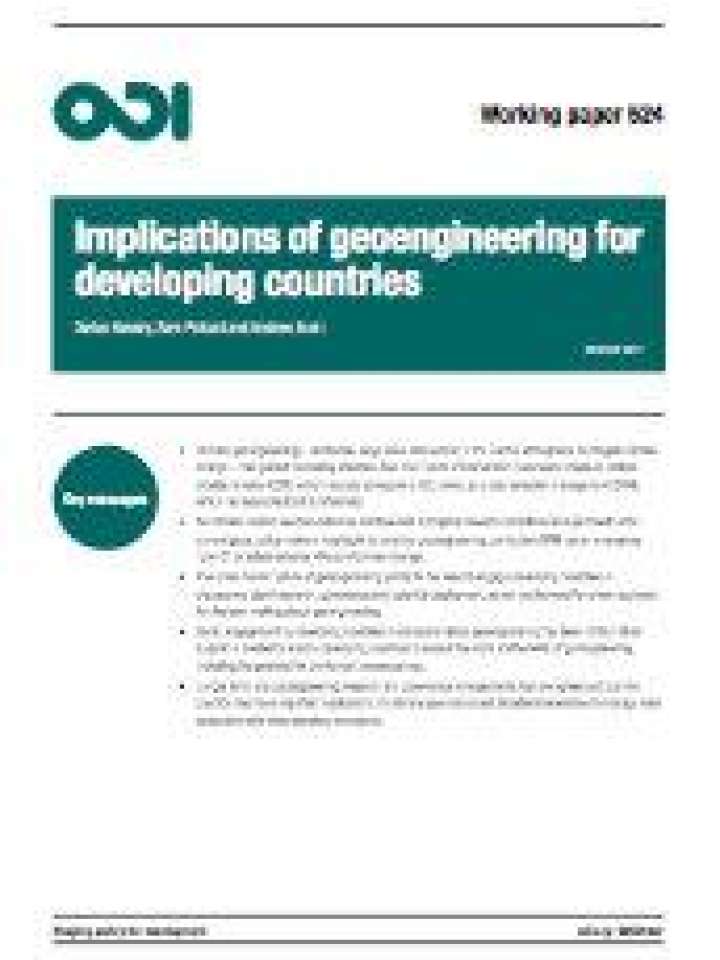Implications of geoengineering for developing countries
This working paper focuses on geoengineering as a potentially significant climate and development policy issue for developing countries. It raises questions that developing country policy-makers, who may not yet be engaged with climate geoengineering, may soon need to consider. In view of current trends, this brief also suggests areas for future policy research that would be required to ensure inclusive governance of climate geoengineering research and potential interventions.
Geoengineering or climate engineering – the deliberate large-scale alteration of the Earth’s environment to counteract climate change through greenhouse gas (GHG) removal or altering the Earth’s reflectivity (or albedo effect) – is receiving increasing attention from policy-makers and researchers as a potential means to mitigate the impacts of climate change. Views on whether geoengineering is needed are divided. Proponents highlight that most IPCC scenarios that yield a 1.5°C future rely not only on ambitious global mitigation but also on the removal and storage or sequestration of large amounts of GHGs. But geoengineering opponents note that mitigation efforts alone could stabilise the climate, and view geoengineering as a distraction from a commitment to rapid decarbonisation.
Explore further
